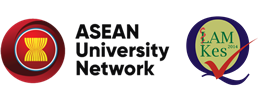APIXABAN DENGAN ANTIPLATELET PASCA SERANGAN JANTUNG ISKEMIA
Apixaban sebagai inhibitor faktor Xa diduga dapat mencegah serangan ulang jantung iskemia jika ditambahkan pada antiplatelet. Proyek penelitian APPRAISE yang melibatkan lebih dari 7000 relawan, bertujuan untuk mengetahui kemanjuran penambahan apixaban pada terapi standar antiplatelet untuk mencegah serangan ulang pada pasien dengan acute coronary syndroma. Hasil penelitian selengkapnya dapat dibaca di NEJM:
Original Article
Apixaban with Antiplatelet Therapy after Acute Coronary Syndrome
John H. Alexander, M.D., M.H.S., Renato D. Lopes, M.D., Ph.D., Stefan James, M.D., Ph.D., Rakhi Kilaru, M.S., Yaohua He, M.D., Ph.D., Puneet Mohan, M.D., Ph.D., Deepak L. Bhatt, M.D., M.P.H., Shaun Goodman, M.D., Freek W. Verheugt, M.D., Ph.D., Marcus Flather, M.D., Kurt Huber, M.D., Danny Liaw, M.D., Ph.D., Steen E. Husted, M.D., Jose Lopez-Sendon, M.D., Raffaele De Caterina, M.D., Petr Jansky, M.D., Harald Darius, M.D., Dragos Vinereanu, M.D., Jan H. Cornel, M.D., Frank Cools, M.D., Dan Atar, M.D., Jose Luis Leiva-Pons, M.D., Matyas Keltai, M.D., Hisao Ogawa, M.D., Ph.D., Prem Pais, M.D., Alexander Parkhomenko, M.D., Witold Ruzyllo, M.D., Rafael Diaz, M.D., Harvey White, M.D., Mikhail Ruda, M.D., Margarida Geraldes, Ph.D., Jack Lawrence, M.D., Robert A. Harrington, M.D., and Lars Wallentin, M.D., Ph.D. for the APPRAISE-2 Investigators
N Engl J Med 2011; 365:699-708August 25, 2011
- Abstract
- Article
- References
-
Background
Apixaban, an oral, direct factor Xa inhibitor, may reduce the risk of recurrent ischemic events when added to antiplatelet therapy after an acute coronary syndrome.
Methods
We conducted a randomized, double-blind, placebo-controlled clinical trial comparing apixaban, at a dose of 5 mg twice daily, with placebo, in addition to standard antiplatelet therapy, in patients with a recent acute coronary syndrome and at least two additional risk factors for recurrent ischemic events.
Results
The trial was terminated prematurely after recruitment of 7392 patients because of an increase in major bleeding events with apixaban in the absence of a counterbalancing reduction in recurrent ischemic events. With a median follow-up of 241 days, the primary outcome of cardiovascular death, myocardial infarction, or ischemic stroke occurred in 279 of the 3705 patients (7.5%) assigned to apixaban (13.2 events per 100 patient-years) and in 293 of the 3687 patients (7.9%) assigned to placebo (14.0 events per 100 patient-years) (hazard ratio with apixaban, 0.95; 95% confidence interval [CI], 0.80 to 1.11; P=0.51). The primary safety outcome of major bleeding according to the Thrombolysis in Myocardial Infarction (TIMI) definition occurred in 46 of the 3673 patients (1.3%) who received at least one dose of apixaban (2.4 events per 100 patient-years) and in 18 of the 3642 patients (0.5%) who received at least one dose of placebo (0.9 events per 100 patient-years) (hazard ratio with apixaban, 2.59; 95% CI, 1.50 to 4.46; P=0.001). A greater number of intracranial and fatal bleeding events occurred with apixaban than with placebo.
Conclusions
The addition of apixaban, at a dose of 5 mg twice daily, to antiplatelet therapy in high-risk patients after an acute coronary syndrome increased the number of major bleeding events without a significant reduction in recurrent ischemic events. (Funded by Bristol-Myers Squibb and Pfizer; APPRAISE-2 ClinicalTrials.gov number, NCT00831441.)


